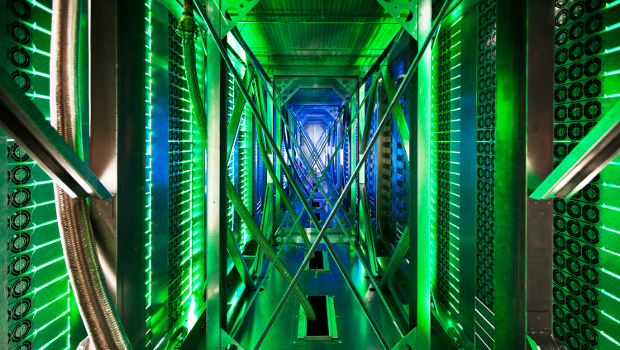Ministers from seven European countries have signed a declaration to support the next generation of computing and data infrastructures, dubbed EuroHPC,
The project will acquire and deploy “an integrated world-class high-performance computing (HPC) infrastructure capable of at least 1018 calculations per second,” placing it firmly in the exascale range of computer. The project has been compared in size to Airbus in the 1990s and Galileo in the 2000s.
The countries that have signed up are France, Germany, Italy, Luxembourg, Netherlands, Portugal and Spain, with the infrastructure to be made available across the EU for scientific communities, industry and the public sector, irrespective of where users are located, according to a statement.
“High-performance computing is moving towards its next frontier – more than 100 times faster than the fastest machines currently available in Europe,” said Andrus Ansip, vice-president, Digital Single Market, European Commission. “But not all EU countries have the capacity to build and maintain such infrastructure, or to develop such technologies on their own. If we stay dependent on others for this critical resource, then we risk getting technologically ‘locked’, delayed or deprived of strategic know-how. Europe needs integrated world-class capability in supercomputing to be ahead in the global race. Today’s declaration is a great step forward. I encourage even more EU countries to engage in this ambitious endeavour”.
Currently, EU industry provides about 5% of HPC resources worldwide, but consumes a third, according to the commission. In April 2016 in the European Cloud Initiative, part of the EU’s strategy to digitise European industry, the Commission urged Member States to step up cooperation in HPC to boost Europe’s scientific capabilities and industrial competitiveness. It said it is also committed to develop a high-performance computing ecosystem based on European technology, including low power chips. The goal is to have exascale supercomputers based on European technology in the global top three by 2022.
World-class infrastructure will also support the European Open Science Cloud, said the commission, which will offer Europe’s 1.7 million researchers and 70 million science and technology professionals a virtual environment to store, share and re-use their data across disciplines and borders. Focusing initially on the scientific community, the aim is for the user base of the cloud over time to be extended to the public and to businesses.
The EU Member States that have signed the EuroHPC declaration have agreed to work towards the establishment of a multi-government cooperation framework for acquiring and deploying an integrated supercomputing infrastructure of the next generation. Other member states will be encouraged to join in the future to work together and with the European Commission in this initiative.
The challenge ahead, said the commission, is for member states in coordination with the European Commission to prepare an implementation roadmap to deploy the European exascale supercomputing infrastructure. This roadmap should address aspects involved in the HPC supply chain from operational requirements to the development of high-quality competitive European technology. It will also tackle the pooling of public and private resources for acquiring and operating the infrastructure. The target is to have by 2020 at least two pre-exascale computers and reach full exascale performance by 2023. The objective is also to define test-beds for HPC and big data applications that make use of these supercomputers for scientific, public administration and industrial purposes.
TechCentral Reporters








Subscribers 0
Fans 0
Followers 0
Followers